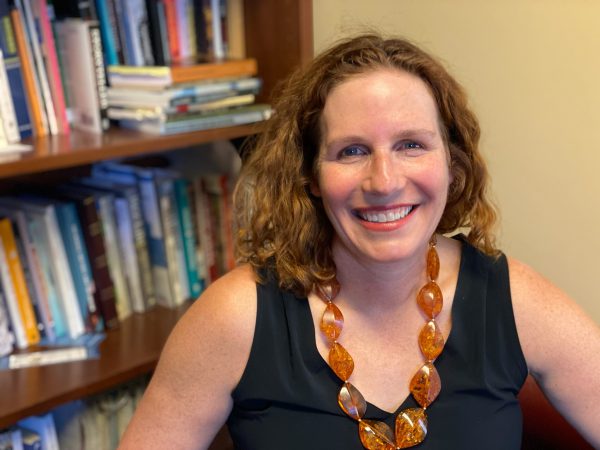Professor of English Amelia Katanski ’92 has earned a Fulbright U.S. Scholar Program award that will send her to Australia during the 2023–24 academic year.
Katanski will be working with faculty at the University of Wollongong to develop curriculum that will better prepare K students for study abroad there. She previously undertook similar work after a visit to another K study abroad site—Curtin University, in Perth, Australia—and created a sophomore seminar titled World Indigenous Literatures to help students be more aware of Indigenous issues while on study abroad. This time the goal is to develop a curriculum in partnership with the host university and centered on land-based learning that addresses what international students need to know before going to Wollongong, with an emphasis on how K students impact Wollongong’s Indigenous faculty, staff and students.
“Like most universities in Australia, Wollongong has a lot of international students from all over the world, not just the U.S., which is very important to their functioning,” Katanski said. “The university is trying to be conscious about what it means for them to welcome these students onto Indigenous land through a program that teaches curriculum reconciliation, which looks at how to keep Indigenous issues at the forefront of all university operations. The international program would like to focus on their own curriculum reconciliation process, so I would be going through it with them or learning from their experiences, depending on timing.”

Katanski will spend her fall term preparing for the Fulbright trip and working on another piece of a sabbatical project before heading to Australia in January. She is one of about 800 U.S. citizens who will teach, conduct research or provide expertise abroad through Fulbright. Those citizens are selected based on their academic and professional achievement, as well as their record of service and demonstrated leadership. The awards are funded through the U.S. Department of State and the J. William Fulbright Foreign Scholarship Board.
The Fulbright Program is the U.S. government’s international education-exchange program designed to build connections between U.S. citizens and people from other countries. The program is funded through an annual Congressional appropriation made to the Department of State. Participating governments and host institutions, corporations and foundations around the world also support the program, which operates in more than 160 countries.
“We don’t get a lot of opportunities to be somewhere long enough that we get to know the people and their land while developing relationships with them,” Katanski said. “I’m really grateful for the chance to be in a place that is far from home with a distinctive landscape, while being supported in my learning.”
Since 1946, the Fulbright Program has given more than 390,000 students, scholars, teachers, artists and professionals in a variety of backgrounds and fields opportunities to study, teach and conduct research, exchange ideas and contribute solutions to international problems.
Thousands of Fulbright alumni have achieved distinction in many fields, including 61 who have been awarded the Nobel Prize, 89 who have received Pulitzer Prizes and 76 MacArthur Fellows. For more information about the Fulbright program, visit its website.
“There’s so much for me to learn and I’m grateful for this opportunity because I can sit at my computer and do some research or read literary, cultural or historical texts, but the important piece for me is helping our students who are learning from and on Indigenous land right now,” Katanski said. “This is also an opportunity to work in partnership with and learn from the University of Wollongong, which has clearly articulated institutional goals about reconciliation, and how Indigenous people and issues are centered within its work.”

